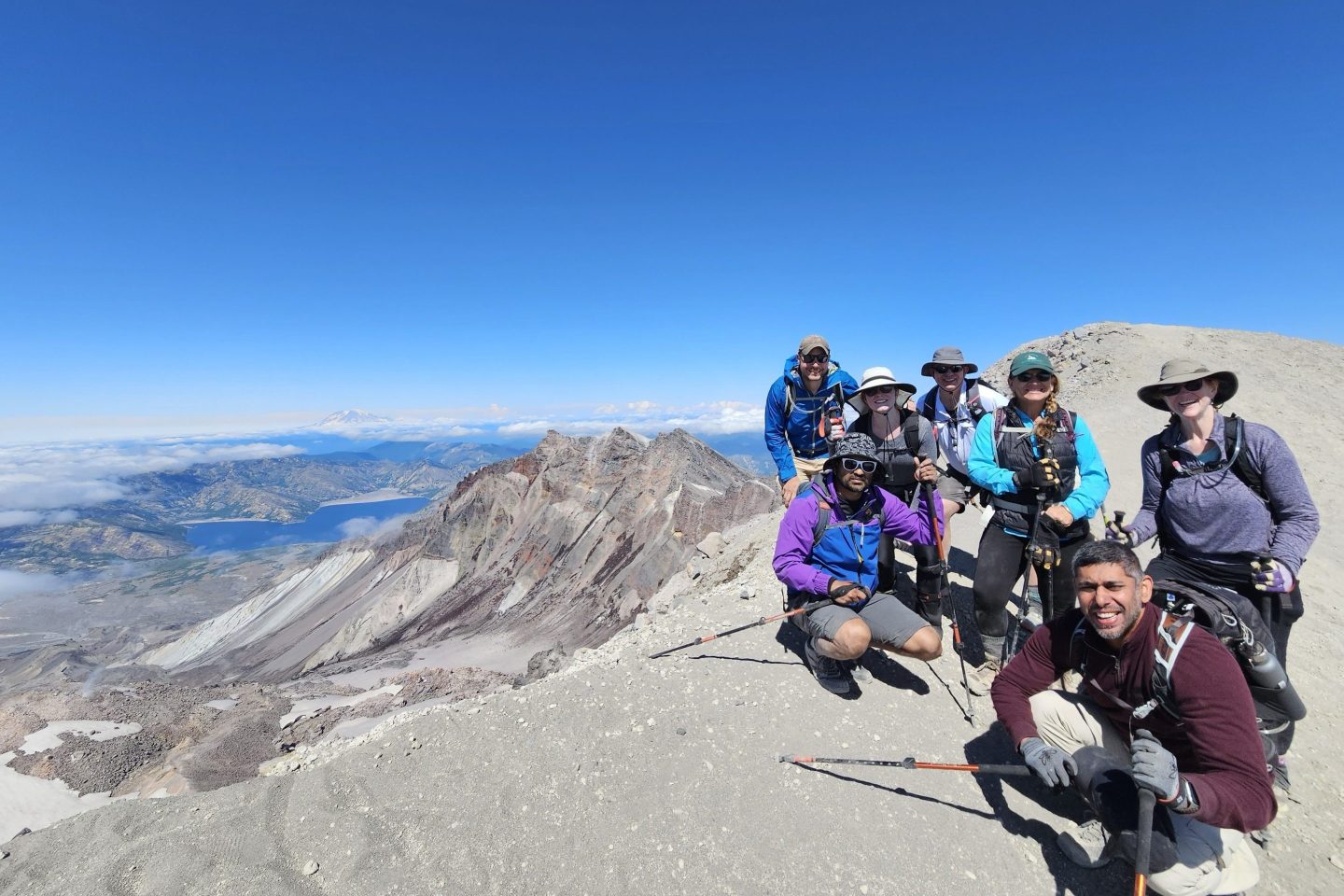Good morning!
Cotopaxi, a Utah-based outdoor goods maker best recognized for its colorful and sustainably made gear, is well-known for its mission to get people outdoors. One way it aims to do that is by internally encouraging employees to spend more time outside.
Full-time workers at the remote-first company earn a “bucket list” trip stipend after 18 months and again after five years of continual service. Employees can use the benefit for short vacations, volunteering trips, or simply exploring new places.
“It goes back to this philosophy that we really want people to be outdoors when they can be, adventuring, using the products,” Grace Zuncic, Cotopaxi’s chief people and impact officer, tells Fortune.
Workers receive a $1,000 stipend after 18 months and $5,000 after five years. The sums are “grossed up,” meaning the company pays a surplus to account for taxes, so employees receive the full amount. Employees must fill out a request form confirming their eligibility, department, how they intend to use the stipend, and their departure and return dates for manager approval.
Since salaried employees get unlimited paid time off and full-time hourly employees earn up to three weeks of PTO annually, workers can greatly extend these trips if desired. Workers have used the funds to summit Mount St. Helens in Washington State, take a two-week trip to Japan, and bike through Ecuador to Cotopaxi, an active stratovolcano in the Andes Mountains and the company’s namesake.

Sabbaticals are an increasingly popular benefit and usually paid, but it’s rare for employees to get such an award after only one and a half years of service. Companies like Adobe, Bank of America, and healthcare software provider Epic Systems offer sabbatical programs, but workers have to wait as long as five, sometimes 15 years, to qualify.
“The award coming in as early as it does is a nod to the fact that we recognize how much people are contributing,” says Zuncic.
Other well-being initiatives include an annual “summer camp” offsite open to all employees, including those working at its distribution centers, and meeting-free periods where two hours are blocked off every other day.
“We celebrate that,” Zuncic says of encouraging workers to share their outdoor experiences. “We want people to live their best lives and do their best work at the company, and it feels so authentic because the business model is pushing for more of this as well.”
Paige McGlauflin
paige.mcglauflin@fortune.com
@paidion
Today’s edition was curated by Emma Burleigh.
Around the Table
A round-up of the most important HR headlines.
- Tech companies desperate for top AI talent are offering million-dollar compensation packages and poaching engineering teams from competitors. Wall Street Journal
- The Baltimore bridge collapse is expected to leave 2,400 unionized port staffers without work, and there is no set plan to help them get back on their feet. Bloomberg
- Young people are disheartened with the job hunt, facing unrealistic expectations for entry-level roles and soulless AI application filtering. Financial Times
- Accounting professors and accountant trade groups are trying to revitalize the allure of a waning profession that’s experiencing a talent shortage. Economist
Watercooler
Everything you need to know from Fortune.
Fine print progress. Women make more money than men in some cities, but only those where the median salary is quite low. —Jane Thier
Hush hush. A Meta employee called out the company for censorship, alleging that she was kicked off her work’s internal system after discussing the Israel-Palestine conflict. —Orianna Rosa Royle
Myth busters. A Stanford economist and work guru contends that hybrid work has won the RTO battle and says forcing employees back to the office full-time is a costly mistake. —Jane Thier
This is the web version of CHRO Daily, a newsletter focusing on helping HR executives navigate the needs of the workplace. Sign up to get it delivered free to your inbox.













